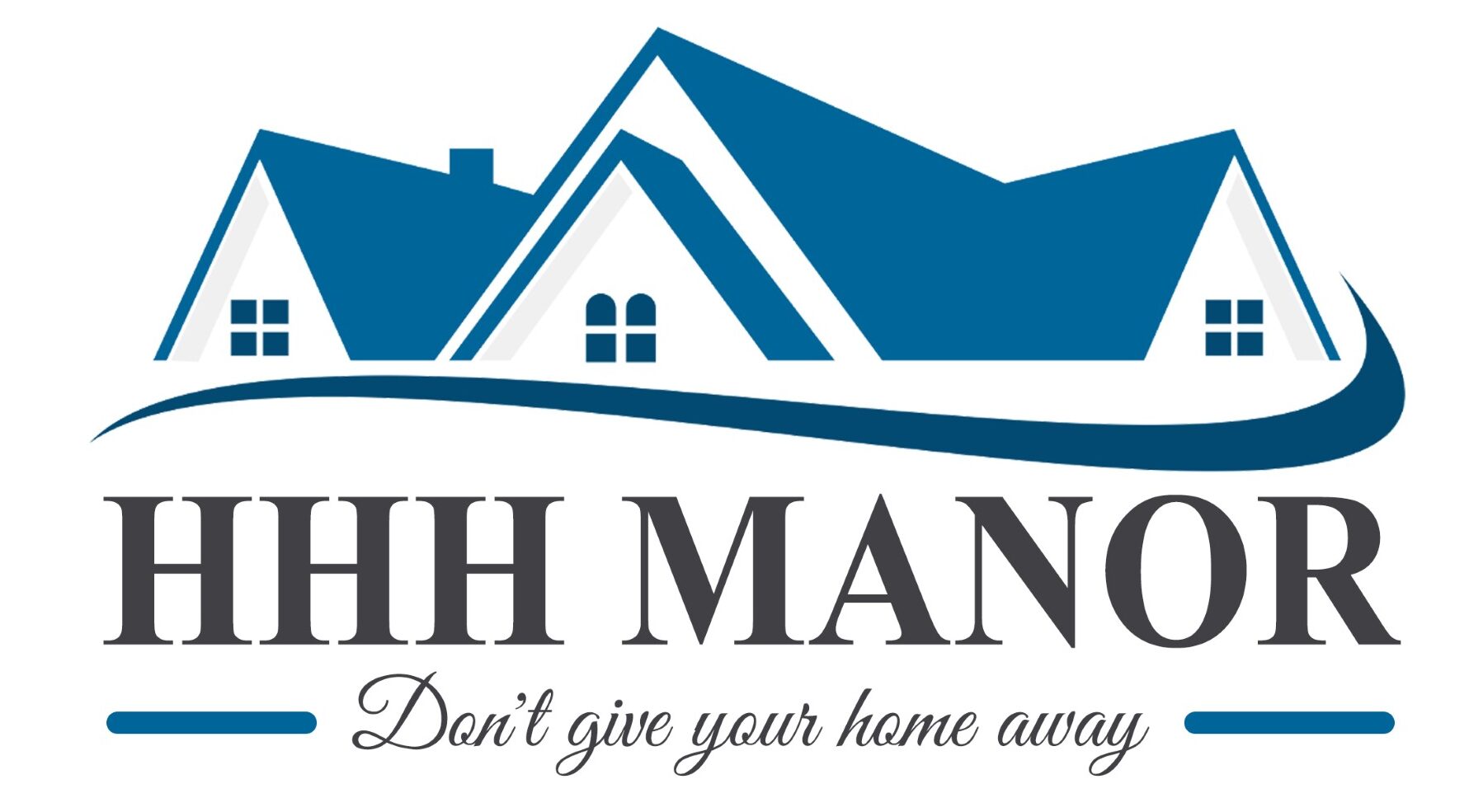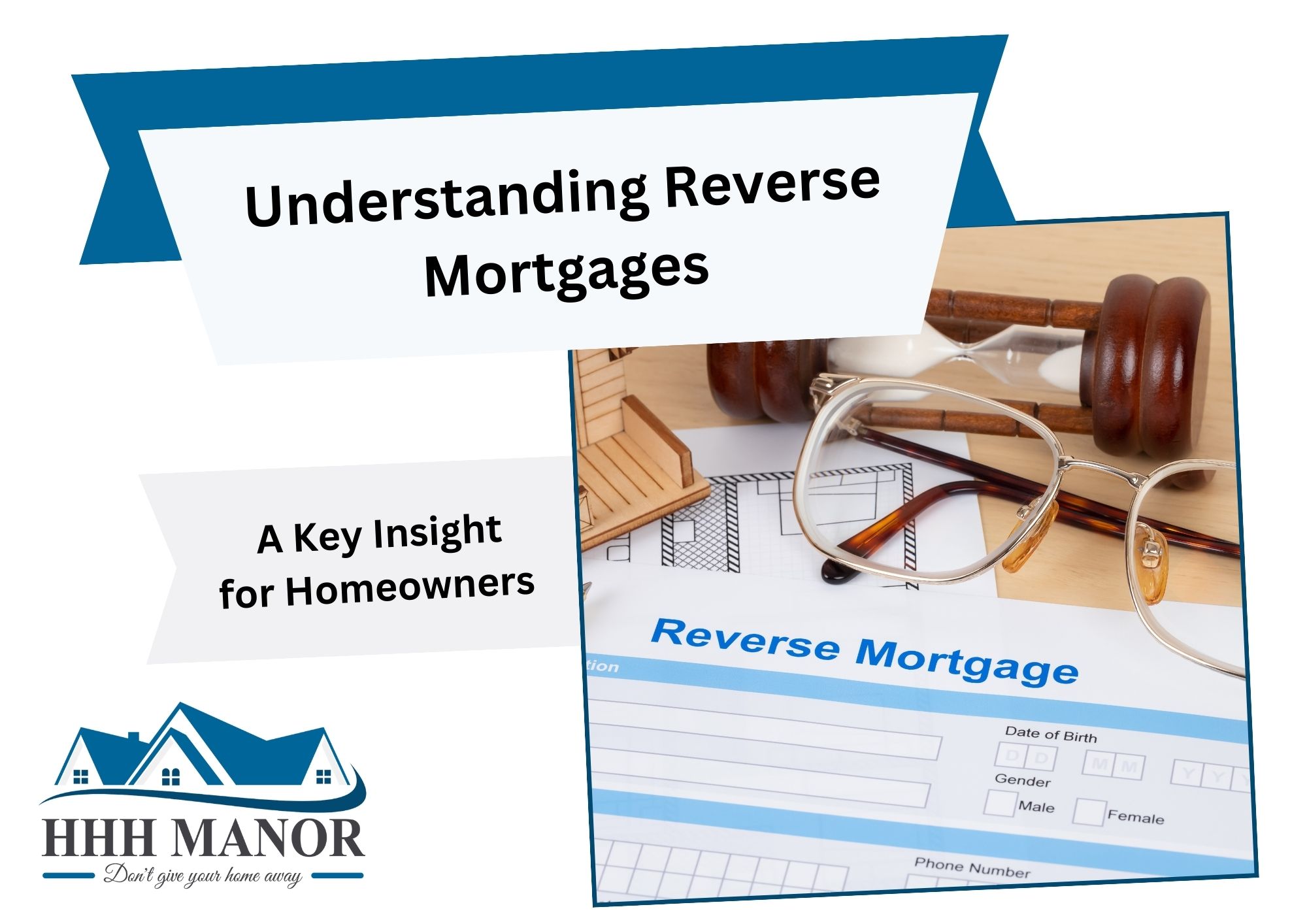Welcome to HHH Manor Real Estate’s Blog!
What is a Reverse Mortgage?
A reverse mortgage is a unique financial product available to homeowners aged 62 and older. It allows them to convert a portion of their home’s equity into cash without having to sell the home or take on additional monthly payments. Unlike traditional mortgages where homeowners make payments to the lender, with a reverse mortgage, the lender makes payments to the homeowner.
How Does a Reverse Mortgage Work?
Here’s a quick breakdown of how reverse mortgages function:
1. Eligibility: Homeowners must be at least 62 years old and have significant equity in their home. The home must be the borrower’s primary residence.
2. Loan Amount: The amount that can be borrowed depends on the homeowner’s age, the home’s value, and current interest rates.
3. Payment Options: Homeowners can choose to receive funds as a lump sum, monthly payments, a line of credit, or a combination of these.
4. Repayment: The loan becomes due when the homeowner sells the home, moves out permanently, or passes away. At that point, the home is typically sold to repay the loan, with any remaining equity going to the homeowner or their heirs.
Benefits of Reverse Mortgages
For homeowners, particularly seniors, reverse mortgages offer several advantages:
- Financial Flexibility: Access to tax-free cash can help cover living expenses, medical bills, or home improvements.
- No Monthly Payments: Homeowners are not required to make monthly mortgage payments, which can alleviate financial stress.
- Retain Home Ownership: Borrowers retain ownership of their home and can continue living in it as long as they meet the loan obligations, such as paying property taxes and insurance.
Risks and Considerations
Despite their benefits, reverse mortgages come with important considerations and potential drawbacks:
- Accumulating Interest: The loan balance grows over time as interest and fees accumulate.
- Impact on Heirs: The home will likely need to be sold to repay the loan, which can affect inheritance plans.
- Eligibility Requirements: Failing to meet the ongoing requirements, such as paying property taxes, can lead to foreclosure.
Reverse Mortgages in the Context of Foreclosures, Probate, and Liens
- Foreclosures: If a borrower fails to meet the loan obligations, the lender can foreclose on the home. This underscores the importance of understanding and managing the terms of the loan.
- Probate: When the homeowner passes away, the reverse mortgage loan must be repaid. This usually involves selling the home during probate to settle the debt. Proper estate planning can help mitigate complications for heirs.
- Liens: Existing liens on the property can impact the reverse mortgage process. All prior liens must be paid off before securing a reverse mortgage, which might involve using part of the loan proceeds.
Conclusion
Reverse mortgages can be a valuable tool for seniors seeking to leverage their home equity for financial stability. However, they require careful consideration and thorough understanding to avoid potential pitfalls. Whether you’re a homeowner contemplating a reverse mortgage or an investor dealing with properties in foreclosure, probate, or liens, staying informed is key to making sound decisions.
For more insights and advice on real estate matters, stay tuned to HHH Manor Real Estate’s blog. Your journey to informed real estate decisions starts here!
Feel free to share your thoughts or ask questions in the comments below. If you need personalized advice, contact our team at HHH Manor Real Estate. We’re here to help you navigate the complexities of the real estate market with confidence.
Stay informed. Stay empowered.
*This blog post is intended for informational purposes only and does not constitute financial or legal advice. Consult with a qualified professional before making any financial decisions.*

